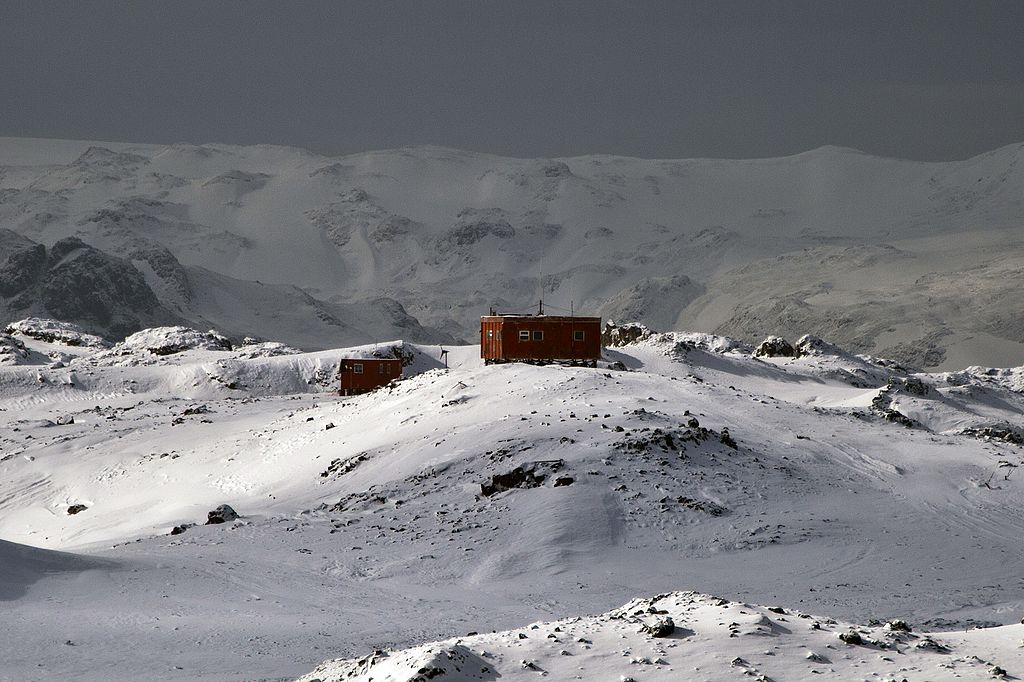The Antarctic Treaty, signed at the height of the Cold War in 1959, stipulated that the southern continent could not be used for military purposes, but it encouraged scientific research. In the decades since, that research has become more tightly focused on climate change and increasingly more urgent.
The trouble is that, as with so many aspects of 21st century life, rapid technological advances have changed the game. There are information-gathering tools now available that the Treaty’s authors could not have imagined—tools that can be used for either scientific or military purposes. These dual-use technologies are at the heart of a growing controversy over China’s Antarctic intentions.
China already has four research bases on Antarctica, but it is now-accelerating construction work on a fifth, on the inexplicably named Inexpressible Island, that made news last week. Satellite imagery revealed that building work reached its highest level of intensity since this latest project began five years ago, according to a new report from the Center for Strategic and International Studies, a Washington-based think tank. When it’s finished, this site will include a satellite ground station that could be used for purposes of scientific communication. But it could also be used for espionage. In particular, it could eavesdrop on the governments of Australia and New Zealand, two members of the so-allied Five Eyes intelligence-sharing alliance with the United States, Britain, and Canada.
The U.S., the United Kingdom, South Korea, and others also have research facilities in the Antarctic region, but this latest construction marks the biggest expansion of China’s Antarctic role in a decade, and it comes at a time when some in the West, particularly in Washington, scrutinize every major Chinese project for potential security threats.
Read More: Enough. Those of Us Caught in the Middle of U.S.-China Tensions Must Speak Up Now
More from TIME
The historical background complicates the story further. China was not one of the dozen countries that signed the 1959 treaty, and when it tried to add its signature in 1981, it was blocked on the grounds that China had not invested enough in Antarctic research. China finally became party to the treaty in 1983 and began construction on its first Antarctic research site a year later. Its current construction projects will allow Beijing to argue that it now makes a major contribution to scientific understanding of the South Pole and that it deserves a voice in negotiating future agreements that might include mining for minerals on the continent, a highly controversial subject.
In fact, this story underlines many of the tension points in today’s deteriorating US-Chinese relations. Beijing feels that it’s unfair that they might be excluded from opportunities and the right to make important scientific contributions by a treaty originally agreed by countries that dominated international politics in an earlier era. It insists its plans for Antarctica can add to “humanity’s scientific understanding and peaceful use of polar and ocean regions” for the benefit of the entire planet. The U.S. and other suspicious of China’s Antarctic projects point to the higher level of secrecy that shrouds China’s government and military, the aggressiveness of its military actions in the South China Sea and other parts of Asia, its support for Putin’s Russia, and its challenge to the current international system. And while both these interpretations of China’s plans may have merit, there may not be enough trust between Washington and Beijing to untangle this knot.
The authors of the 1959 Antarctic Treaty hoped their agreement would ensure that at least one region of the planet remained free of great power competition and conflict. We’re still a long way from worst-case scenarios but, fairly or not, China’s latest South Pole construction work has raised new suspicions.
More Must-Reads from TIME
- Why Trump’s Message Worked on Latino Men
- What Trump’s Win Could Mean for Housing
- The 100 Must-Read Books of 2024
- Sleep Doctors Share the 1 Tip That’s Changed Their Lives
- Column: Let’s Bring Back Romance
- What It’s Like to Have Long COVID As a Kid
- FX’s Say Nothing Is the Must-Watch Political Thriller of 2024
- Merle Bombardieri Is Helping People Make the Baby Decision
Contact us at letters@time.com
